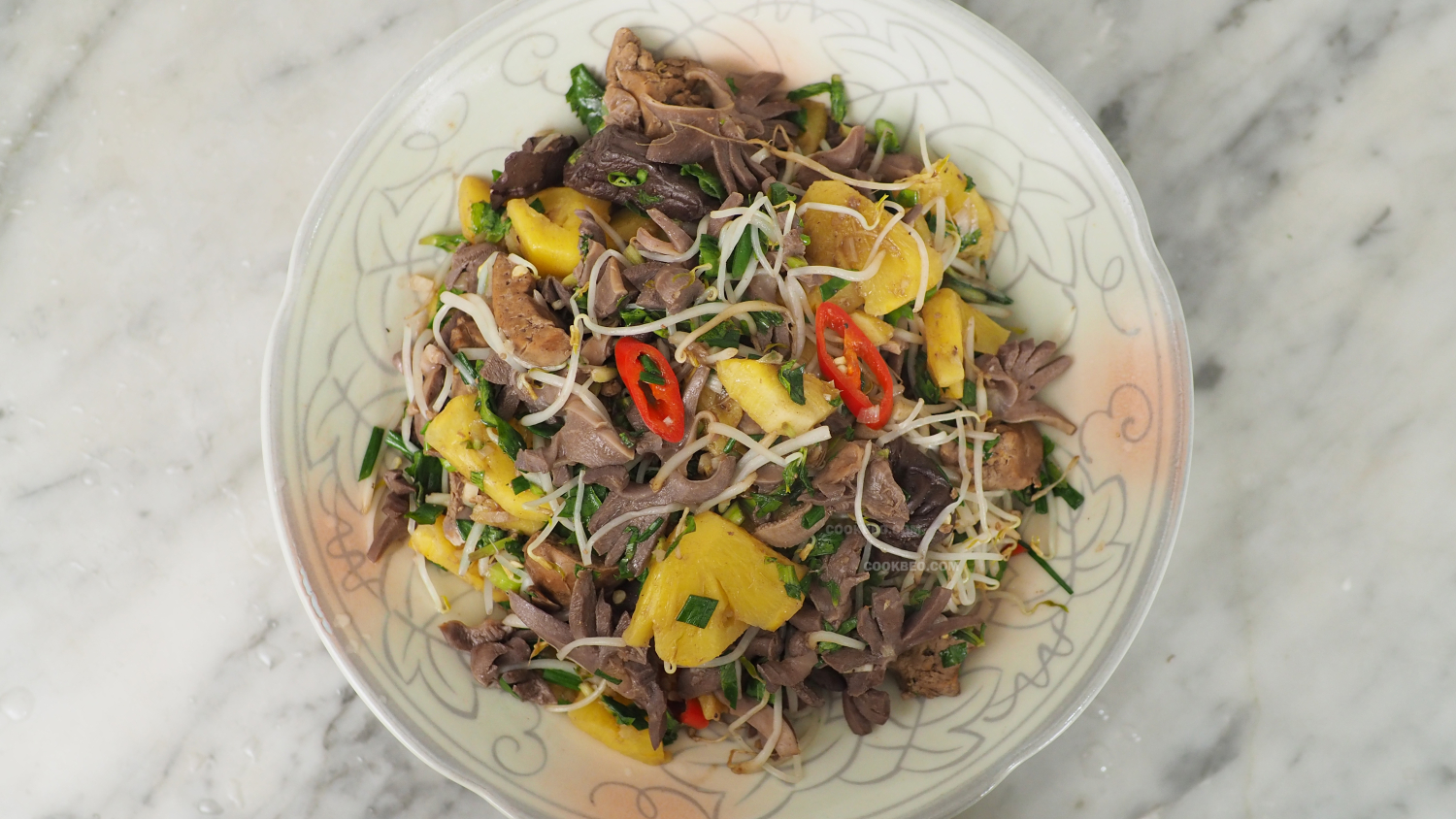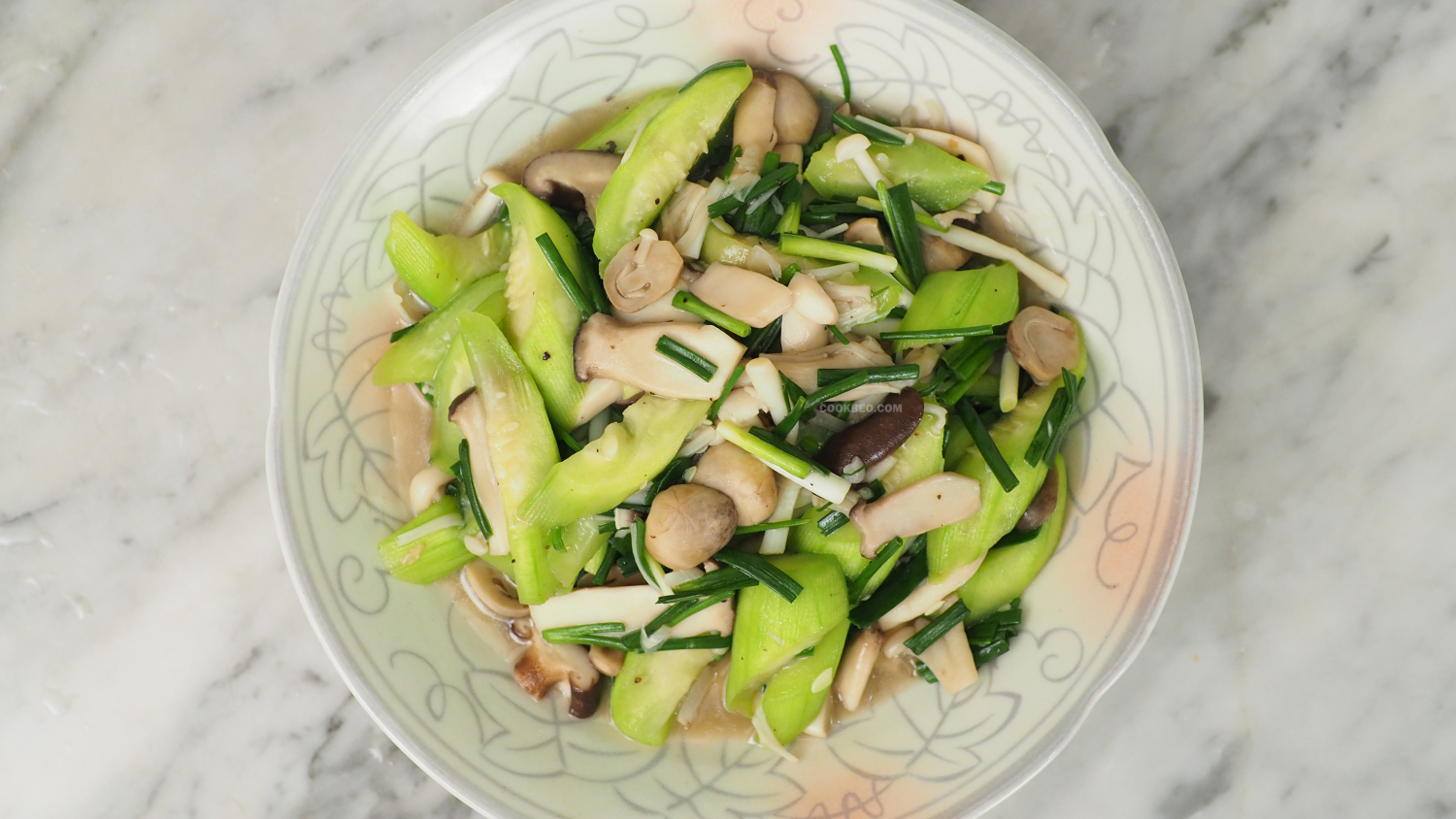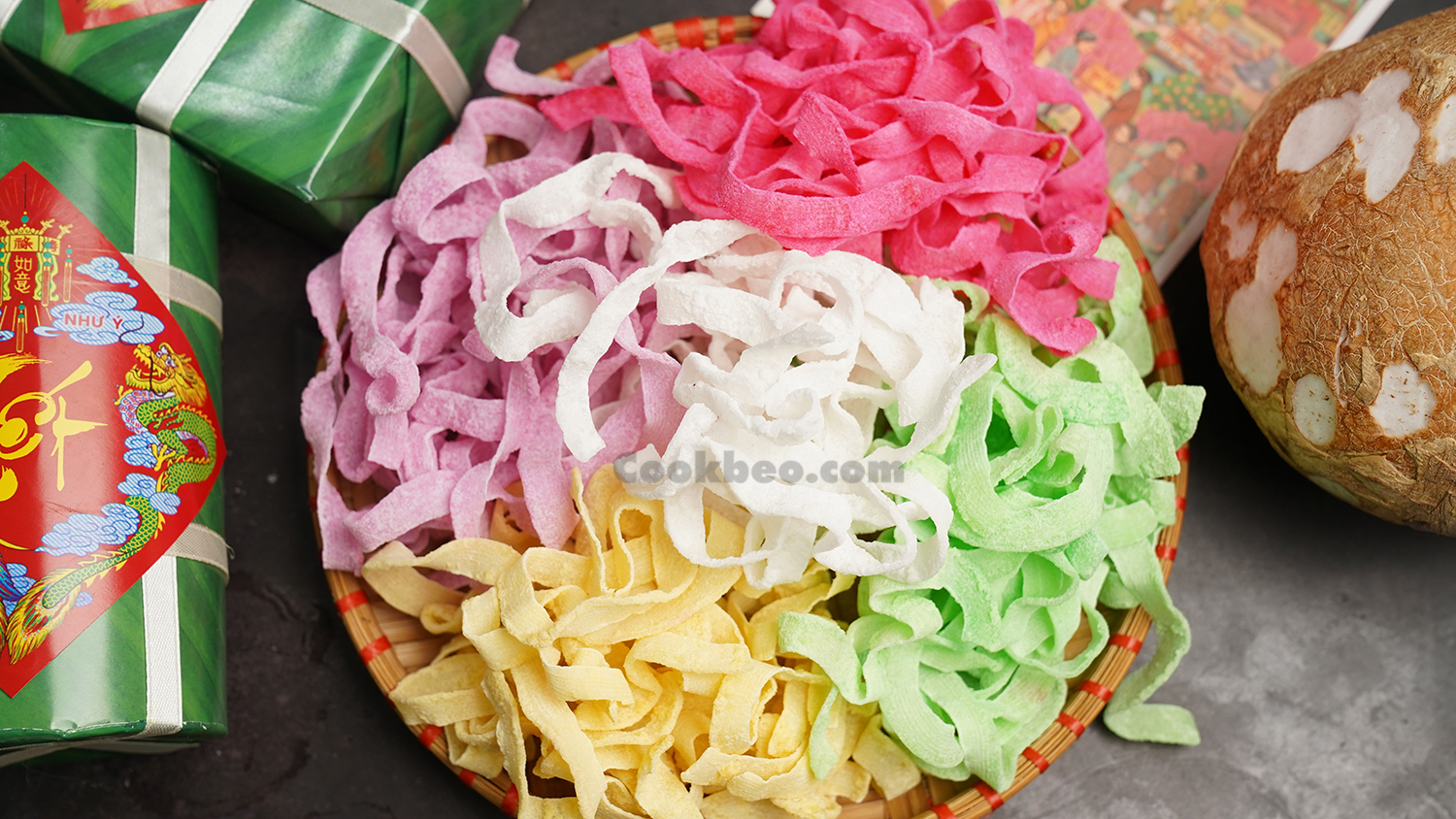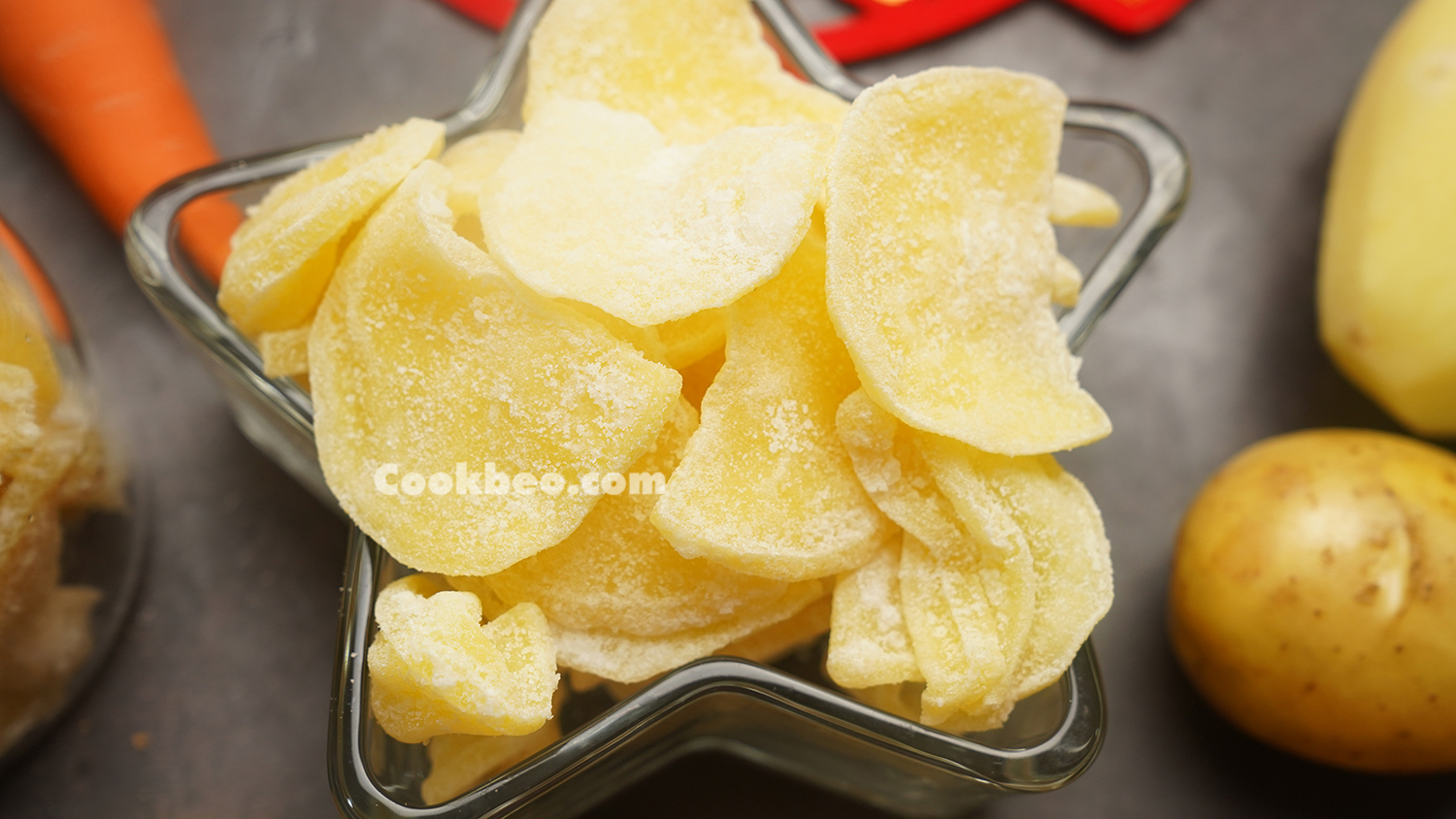How to Make Vietnamese Winter Melon Candy (Mứt Bí)
A secret to making delicious, chewy winter melon candy without it becoming mushy is to remove the soft white flesh and keep only the hard green rind. Additionally, the soaking time in limewater is longer than with other candied fruits.
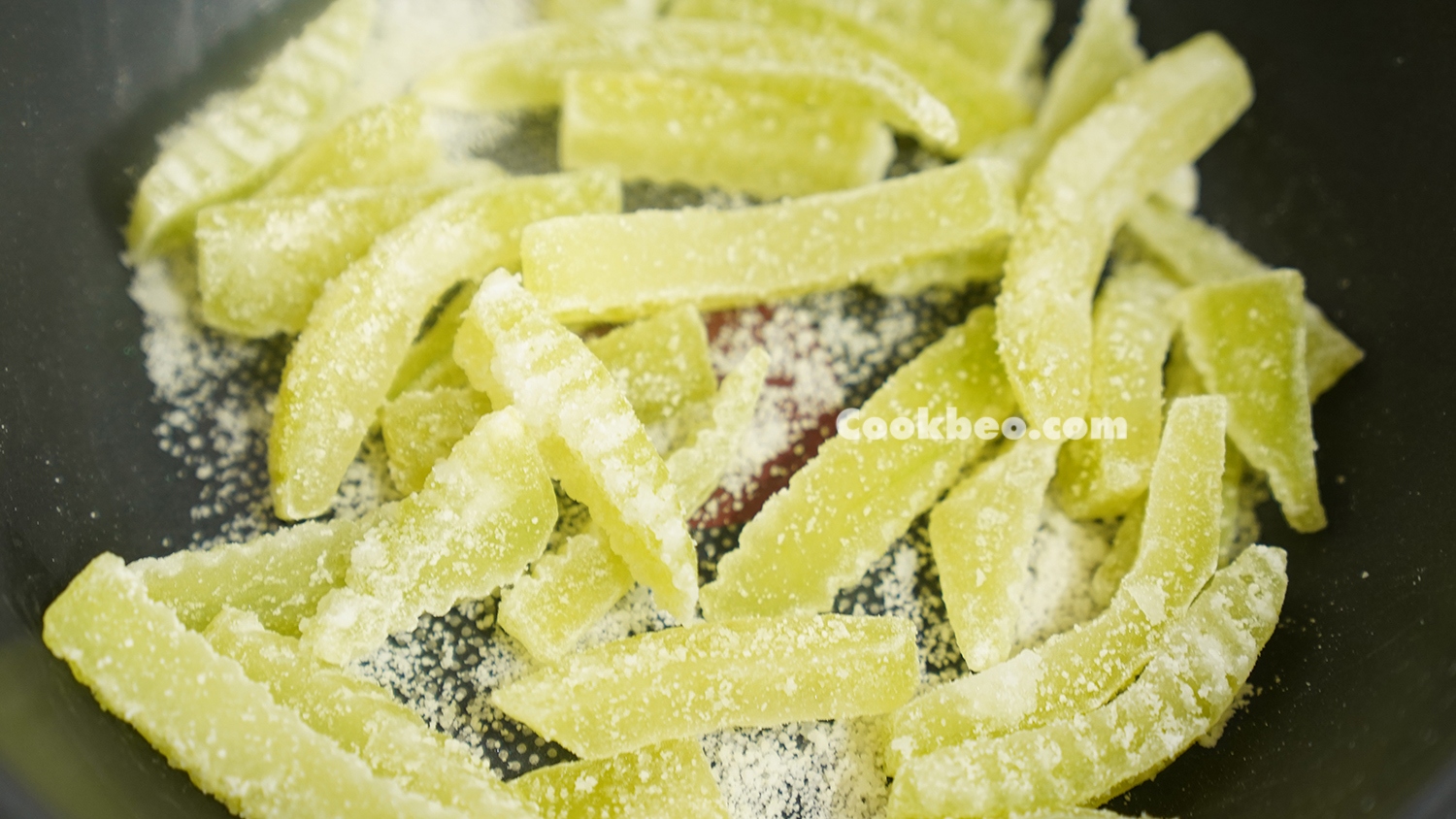
Ingredients
- 1 winter melon (~1.2kg)
- White sugar
- Coarse salt
- Slaked lime
- Alum
- 1 vanilla pod
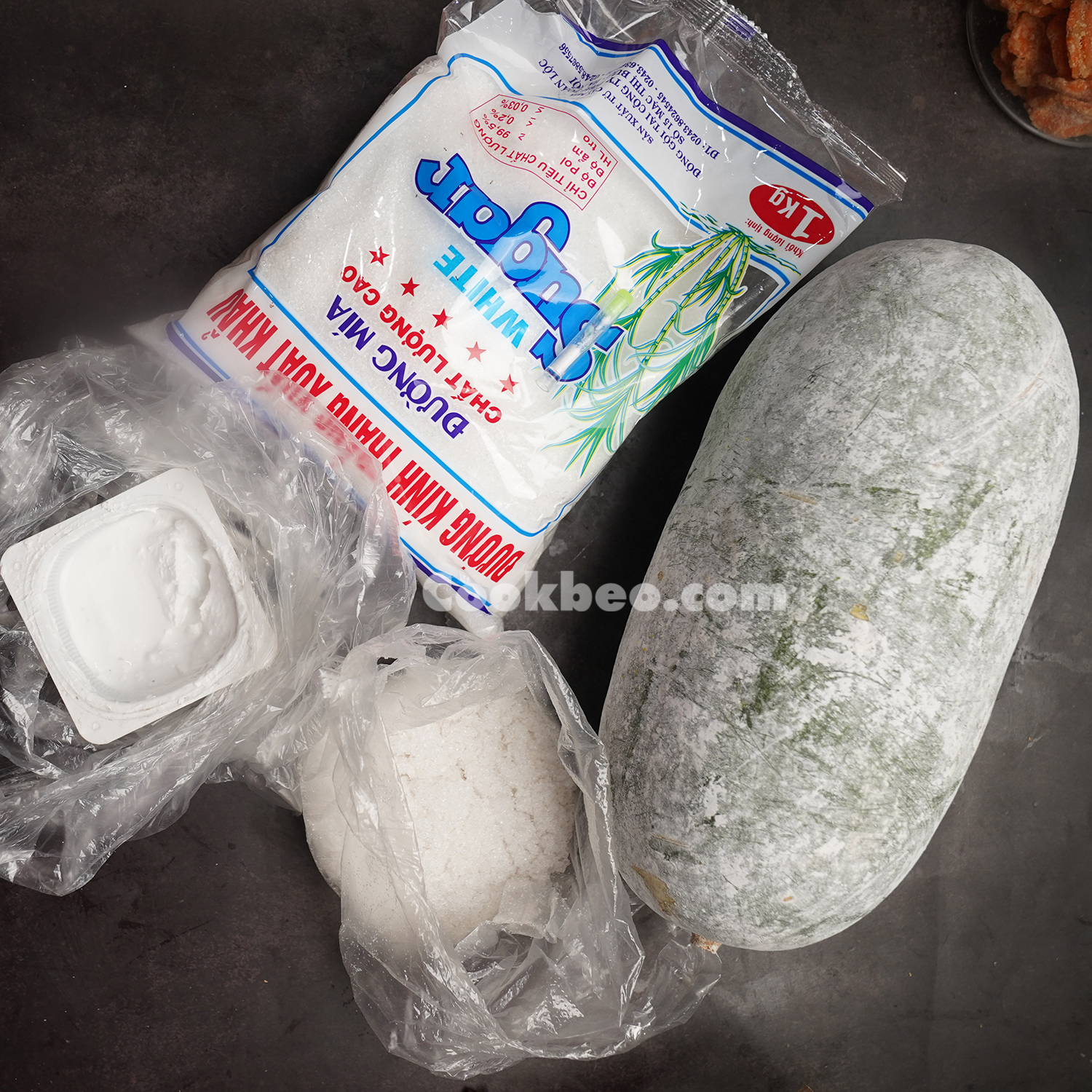
Ingredient Notes
Choose mature melons, preferably winter melons. Winter melons often have a white powdery coating on the outside, and the longer they are stored, the more mature they become. Their flesh becomes hollow, and the rind thickens, making them perfect for candy.
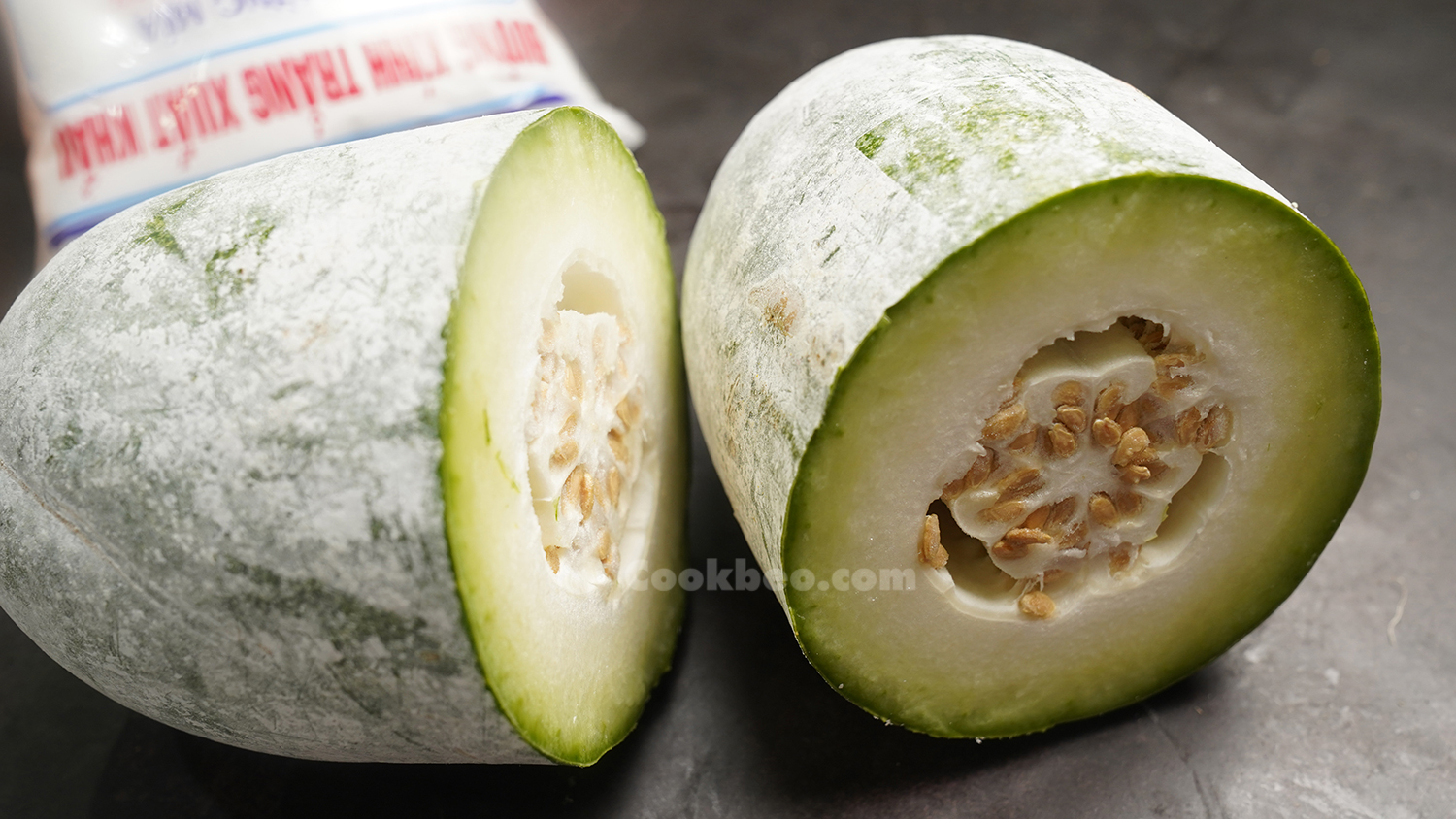 Mature melons have a white powdery coating on the outer skin
Mature melons have a white powdery coating on the outer skin
If you can't find winter melon, you can use regular melons, commonly used for soups. Try to choose the most mature ones, heavy in hand, and that make a hollow sound when tapped.
Slaked lime and alum can be found in stores that sell traditional goods or dried foods. Lime helps firm the melon, preventing it from becoming mushy during cooking, while alum adds chewiness. These ingredients also act as preservatives, allowing the candy to last longer.
You can use either white or yellow sugar, but white sugar will produce a prettier, more prominent frosting effect than yellow sugar.
Instructions
Prepare the Melon
Peel the melon, removing the seeds and as much of the white flesh as possible, leaving only the hard green rind. This will prevent the candy from becoming mushy. If you prefer white candy, peel deeper to remove the green layer. You can save the flesh for making soup.
After peeling, cut the melon into strips about 5-6cm long and 0.5cm thick. Avoid cutting the strips too thick, as the candy may release moisture during cooking due to trapped water.
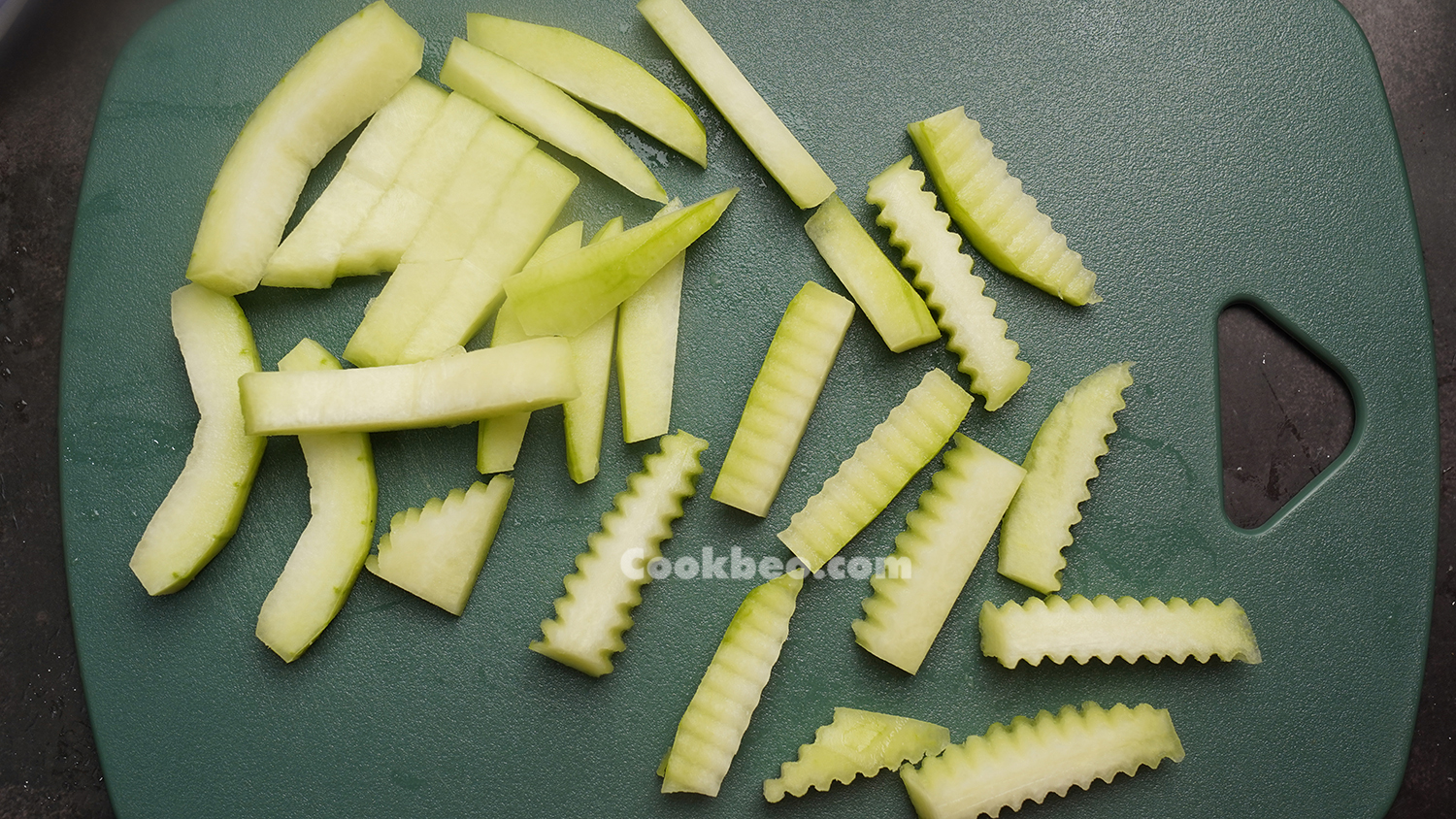
Soak the melon in salted water for 5-10 minutes to remove the resin and reduce any bitterness. Rinse well.
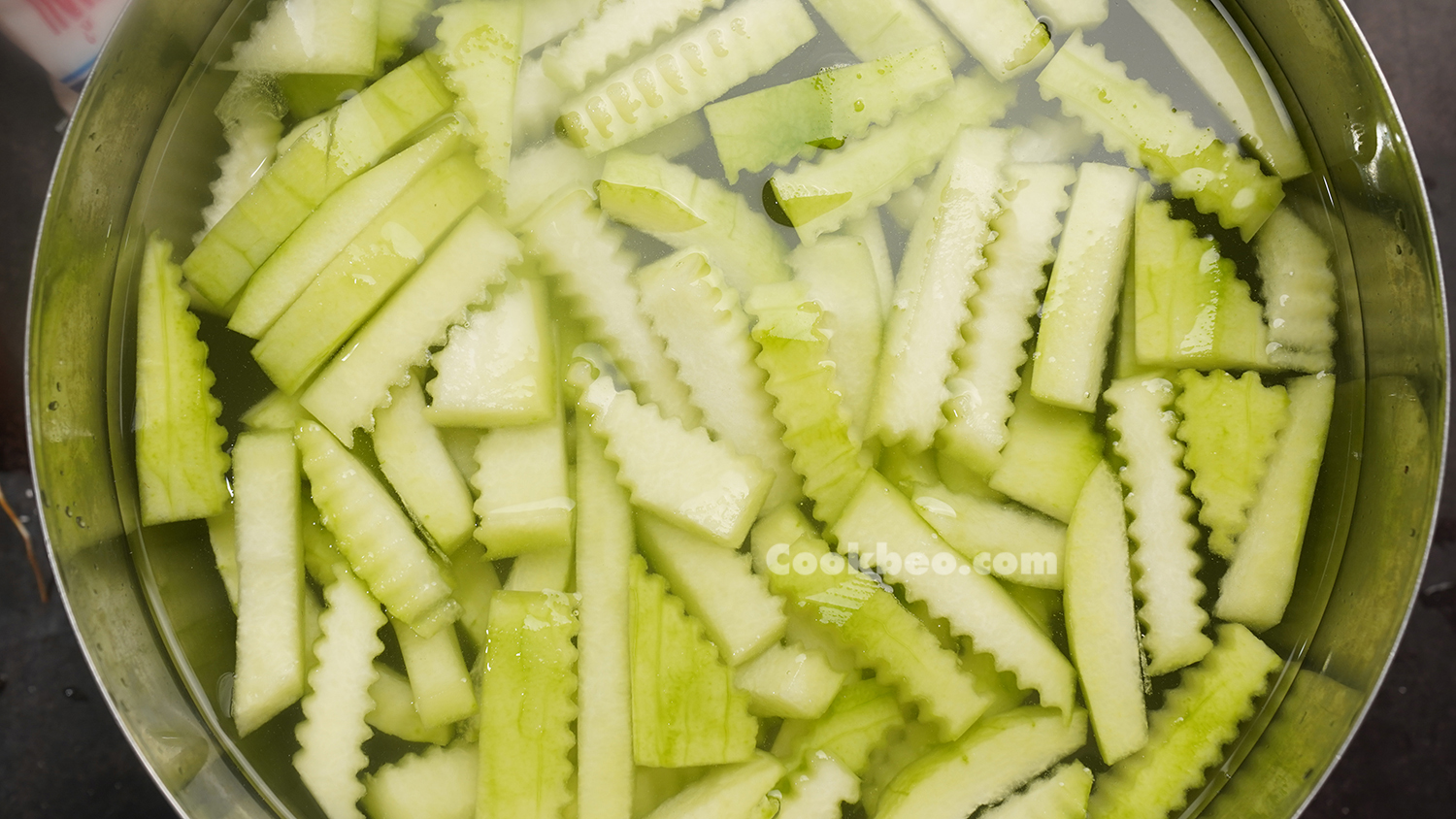
Mix 1 tablespoon of slaked lime with 3-4 liters of water. Let it sit until the lime settles at the bottom, then pour the clear limewater into another bowl. Soak the melon strips in the limewater for at least 3-4 hours. Melon requires a longer soak than other candied fruits to achieve the right firmness.
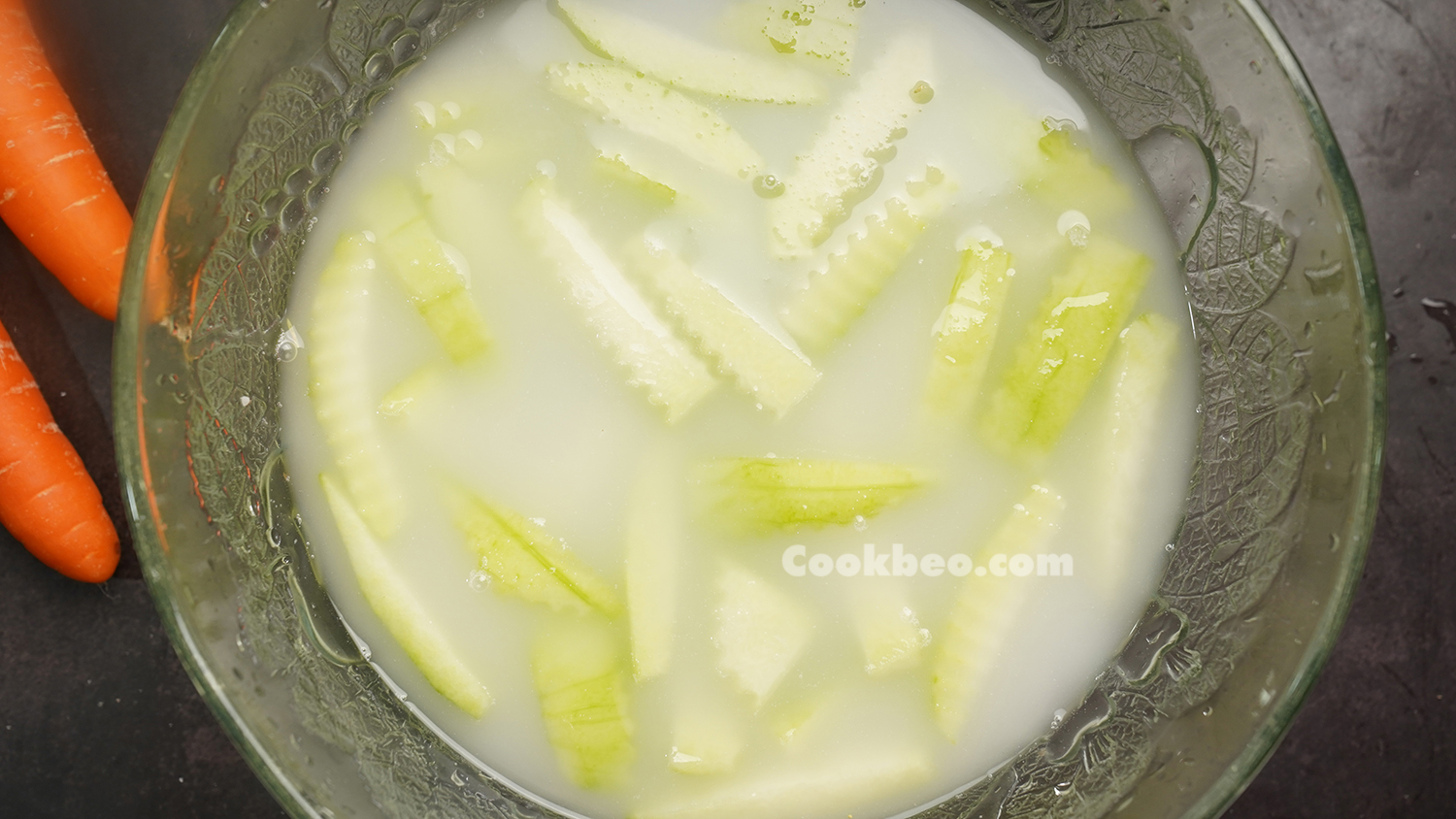
After soaking, rinse the melon thoroughly. Boil enough water to cover the melon, adding 1 tablespoon of alum. When the water boils, blanch the melon for 1-2 minutes. Remove and rinse well to clean off the alum, then drain the melon completely.
Marinate with Sugar
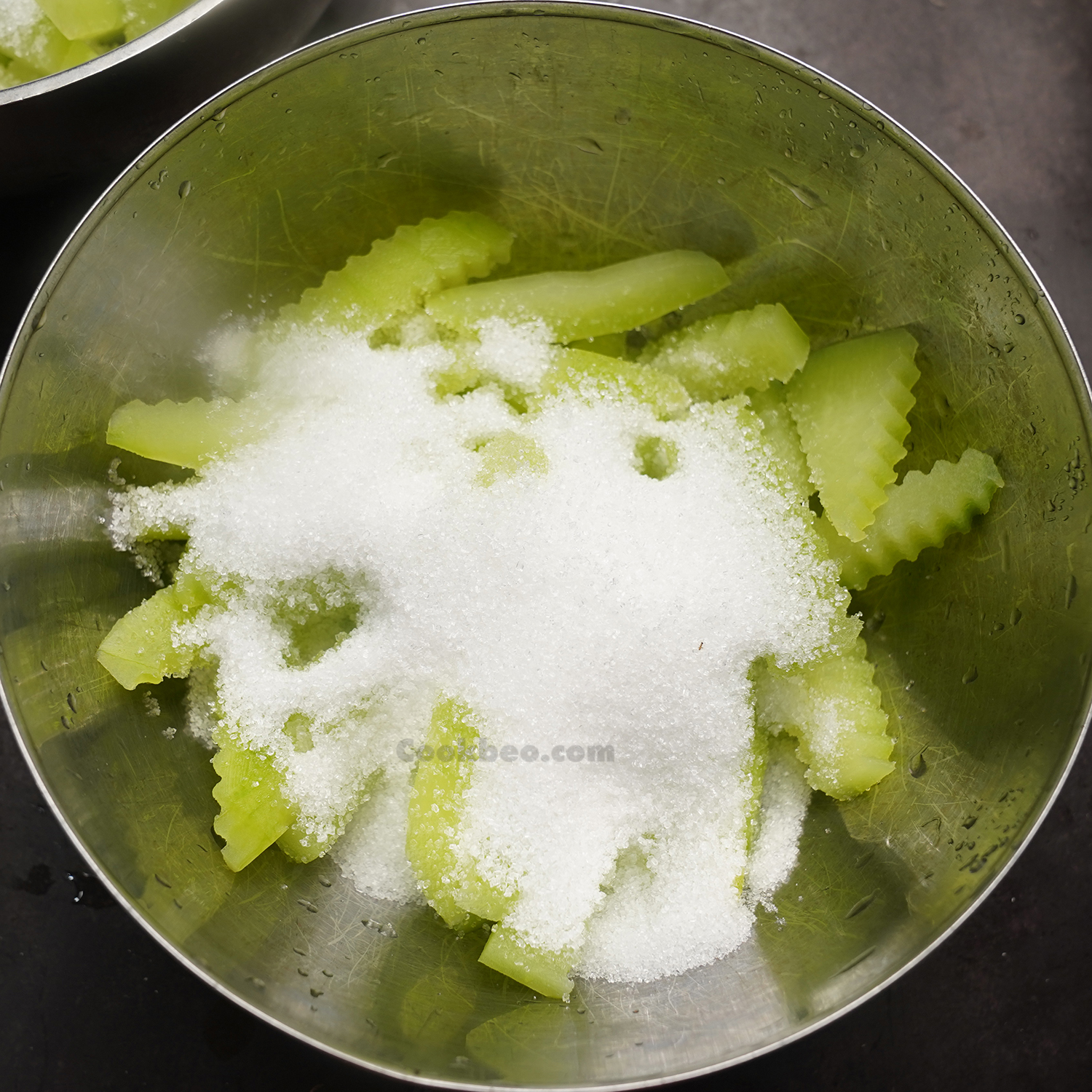
Once the melon is drained, mix it with sugar. Use at least half the weight of the melon in sugar. Using less sugar will prevent the candy from crystallizing and achieving the desired frosty look. Let the melon sit in the sugar for 4-5 hours until the sugar dissolves and the melon absorbs the sweetness.
Cook the Melon Candy
Place the melon and sugar mixture into a pan and heat on medium-low (e.g., set to level 3 on an 8-level stove). Let the sugar gently simmer and absorb into the melon without stirring to avoid breaking the pieces.
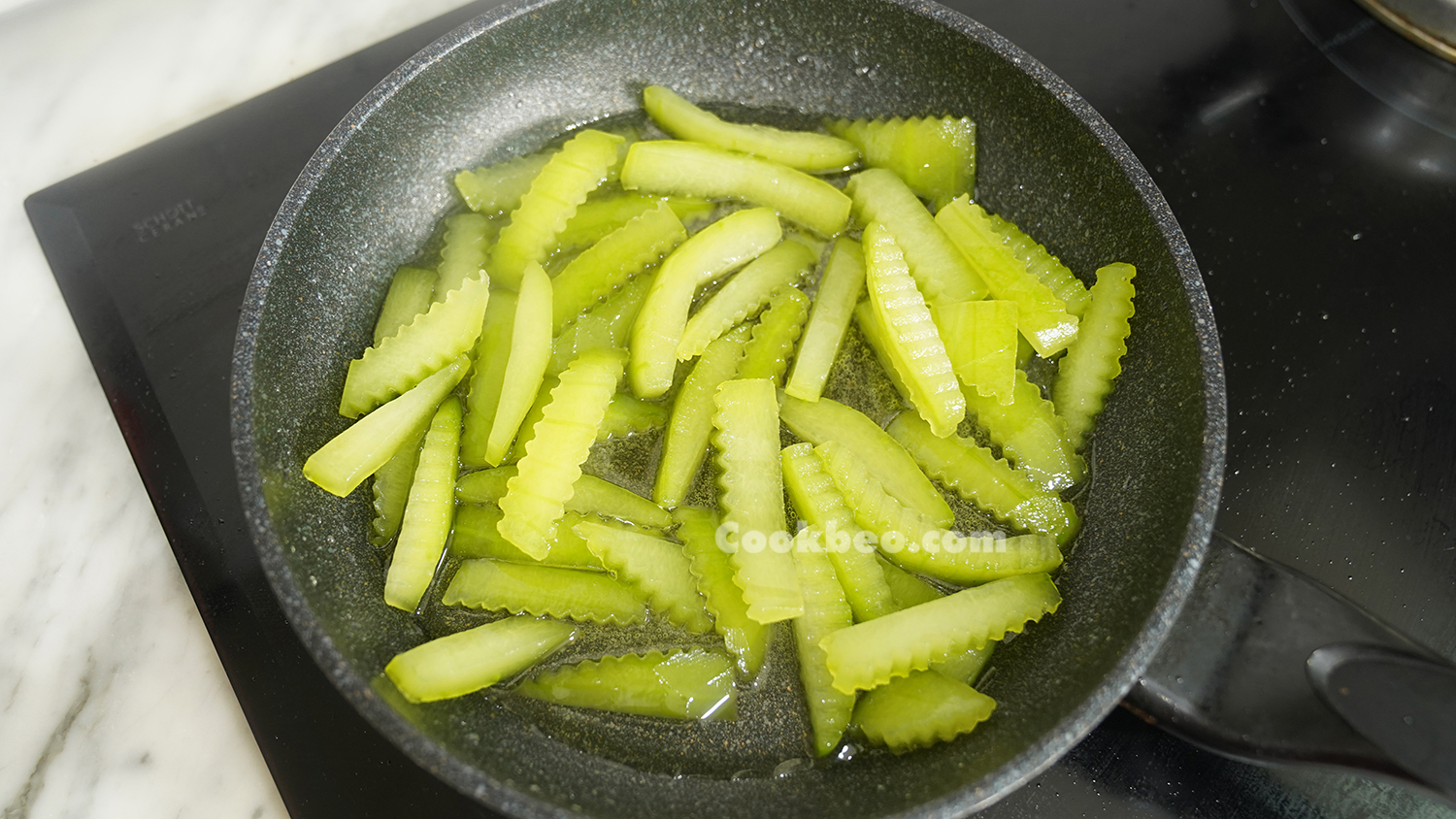
When the sugar thickens and reduces to about half its original volume, lower the heat further and add vanilla. Gently stir, and when the mixture becomes sticky and hard to stir, reduce the heat to its lowest setting. Stir continuously until the candy dries out and the sugar forms a frosty coating on the melon.
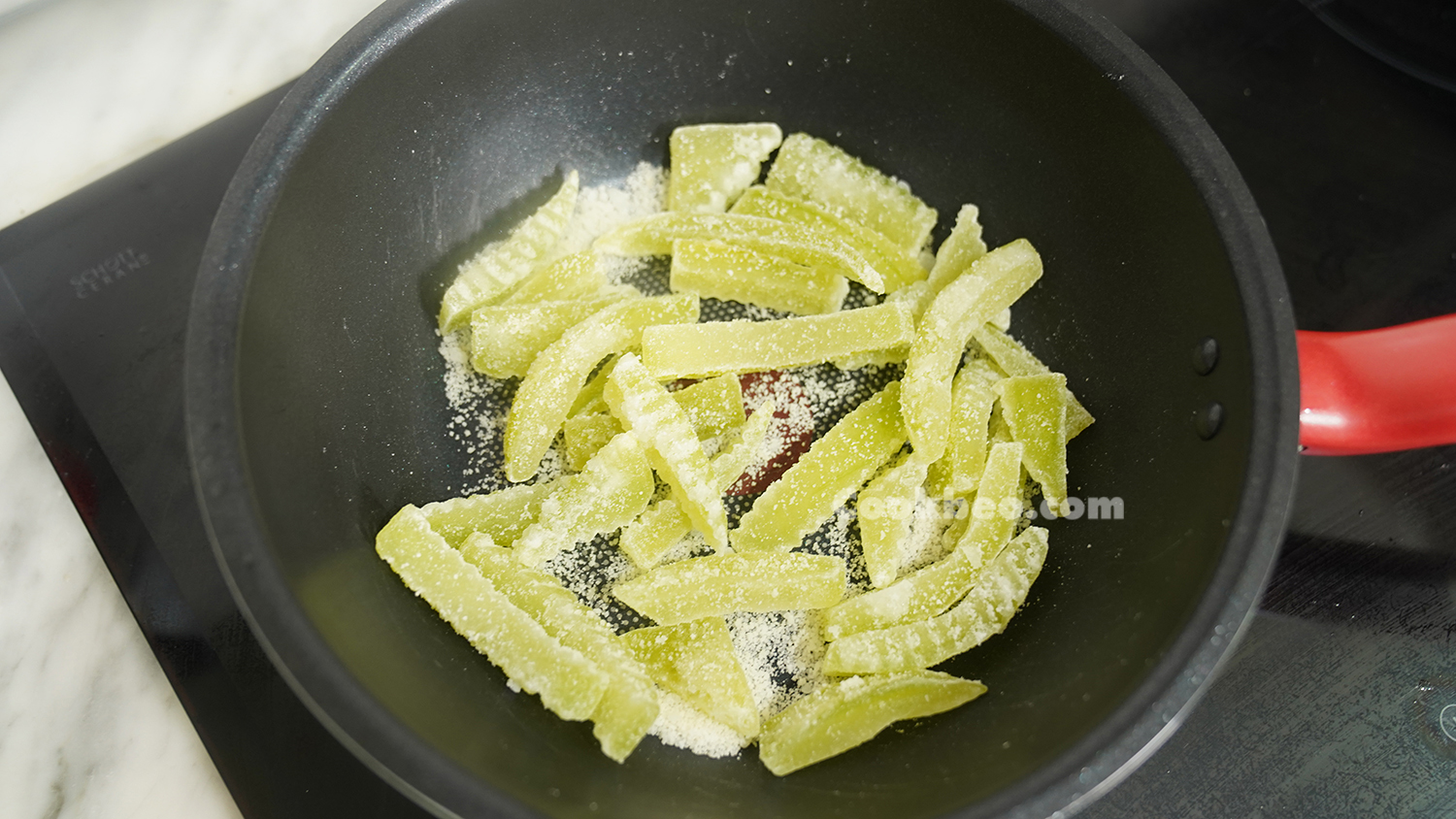
When the candy is fully dry, turn off the heat but keep stirring for another 5-10 minutes to ensure it dries completely. Gently break apart any clumps of sugar to create an even coating. Cooking time is about 30 minutes.
Spread the candy on a tray and let it dry in the sun for 2-3 hours. This will help prevent moisture buildup. If sunlight isn't available, dry the candy in an oven or air fryer at 100°C for about 20 minutes. Keep the oven door slightly open to let moisture escape.
Alternatively, let the candy rest for a bit and cook it again on low heat for 15-20 minutes to ensure it's fully dry.
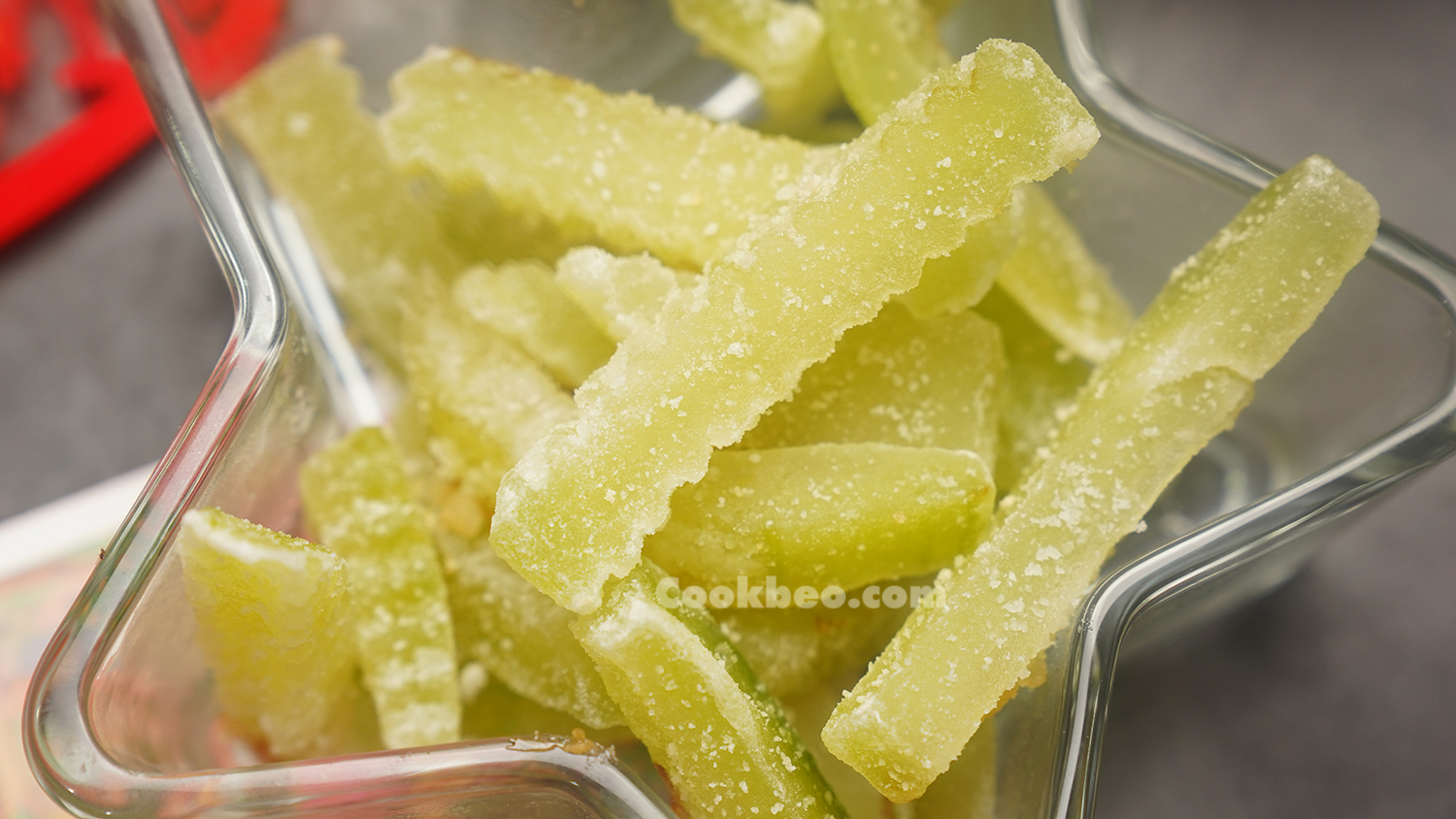
Alternative Method
How to make winter melon candy without limewater:
If you don't have lime, soak the melon in concentrated rice water or dissolved rice flour. However, the soaking time should be longer than with limewater. For example, soaking in limewater takes at least 3-4 hours, while soaking in rice water should last at least 5-6 hours.
Additionally, if you don't have alum, you can use lemon juice to blanch the melon. The rest of the process remains the same.




